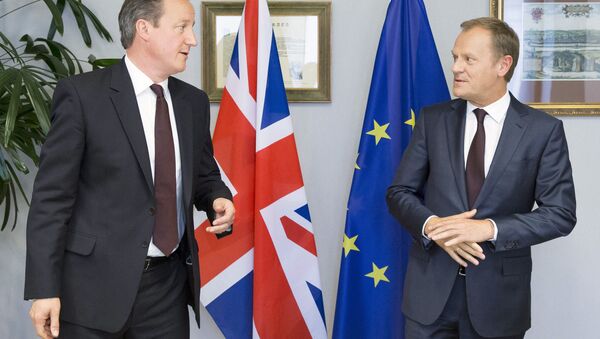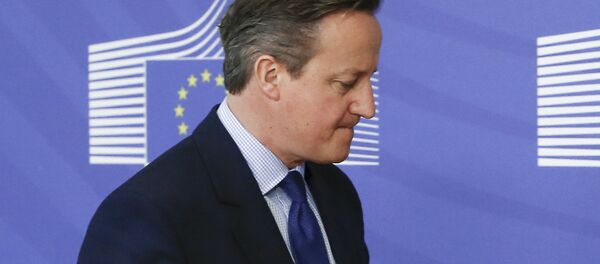Cameron has spent months trying to persuade the leaders of the other EU member states to run with his plans for a renegotiation of the UK's membership of the union. His major issues were an opt-out for 'ever closer union', non-discrimination of non-Eurozone members, agreement that governments could veto Brussels' legislation — the so-called 'Red Card' — and a four-year delay on EU workers receiving in-work benefits in the UK.
However, the detail of what Cameron intends to put before his colleagues at the European Council meeting on February 18/19 was only revealed Tuesday and critics say the document — put together by the Council President Donald Tusk — leaves huge room for interpretation and opposition.
To be, or not to be together, that is the question… My proposal for a new settlement for #UKinEU https://t.co/w4VSmnbahQ
— Donald Tusk (@eucopresident) February 2, 2016
Matthew Elliott, chief executive of Vote Leave, one of the organizations campaigning for a Brexit, said in a statement to Sputnik:
"What the government is asking for from the EU is trivial — these proposals will not take back control from the EU. These gimmicks have been ignored by the EU before and will be ignored again as they will not be in the EU treaty."
Welfare Payments
Cameron is desperate to get an agreement on sufficient opt-outs to keep the UK within the EU and assuage euroskeptics within his own party and Britain as a whole. However, the two key sticking points are left unresolved in the documents. The UK will be allowed to delay paying in-work benefits to non-UK EU workers — but only under certain conditions — the so-called 'emergency brake'.
Draft EU renegotiation document shows real progress in all four areas where UK needs change but there's more work to do.
— David Cameron (@David_Cameron) February 2, 2016
Many Eastern European nations say this is discrimination and counter to the principle of the freedom of movement of people and want the UK only to use the 'emergency brake' if it could prove that its welfare system was totally under strain — and even then with conditions attached.
In a letter released Tuesday, Tusk described the 'emergency brake' as "the creation of a safeguard mechanism to respond to exceptional situations of inflow of workers from other Member States."
Anti-European Union party UKIP employment spokeswoman Jane Collins MEP has warned the Prime Minister's 'emergency brake' will be "as useful as the state aid rules which denied the government the right to help our steel industry" — referring to the UK's failure to gain any aid from the EU to save thousands jobs in the UK.
Sovereignty
On the joint issue of 'ever closer union' and the 'Red Card' Tusk wrote:
"On sovereignty, the proposed Decision of the Heads recognizes that in light of the United Kingdom's special situation under the Treaties, it is not committed to further political integration. It also reinforces respect for subsidiarity, and I propose that the Member States discontinue the consideration of a draft legislative act where a number of national parliaments object to it on the grounds of subsidiarity."
Vote Leave's Matthew Elliott said:
"The government are asking us to trust the promises of the EU commission and EU Judges rather than taking back control. If the public want parliament to have the power to block damaging EU laws then the only safe option is to Vote Leave."





